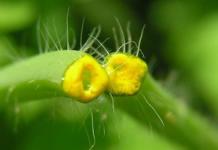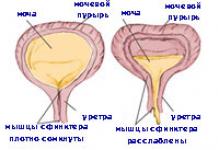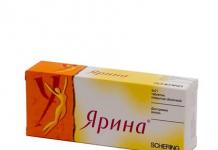Angiotensin-converting enzyme inhibitors are widely used to treat hypertension, heart and kidney failure. ACE inhibitors are substances that, when entering the body, block enzymes that lead to increased blood pressure.
Classification
ACE inhibitors list of drugs latest generation includes a wide range of drugs offered by the pharmacological industry and they have almost the same mechanism of action. They are classified depending on active substance and the method of its removal by ACE inhibitors, the following classification is carried out:
- Sulfhydryl. Recommended for hypertensive patients with coronary artery disease. The drugs are quickly absorbed. It can also be taken by people suffering from diabetes, lung diseases and heart failure. Since the components of the product are excreted by the kidneys, it is not recommended for those who have pathologies of the urinary system.
- Carboxyl. Longer-acting drugs. Processed in the liver.
- Phosphinyl. The liver and kidneys help process the drug. The duration of action is about 1 day.
ACE inhibitors can be combined with diuretics and calcium antagonists, which enhance the hypotensive effect if one ACE inhibitor does not cope with the task.
Mechanism of action
Despite the fact that the list of drugs is wide, their mechanism of action is almost the same. By influencing the hormonal system, which controls the volume and pressure of a person’s blood, ACE inhibitors work to inhibit the angiotensin-converting enzyme. It, in turn, modifies the biologically inactive angiotensin I into angiotensin II and blocks the receptors on which it affects. Angiotensin II is a hormone with a vasoconstrictor effect, in addition, it stimulates the production of aldosterone by the adrenal glands. Aldosterone increases the ability of tissues to retain water.

In parallel, by enhancing the work of proteins of the kallikrein-kinin system, which are responsible for inflammatory processes and maintaining blood pressure, a hypotensive effect occurs.
ACEs prevent the breakdown of bradykidin, a hormone that can dilate blood vessels.
Substances - calcium antagonists, which are part of ACE inhibitor drugs, can slow down the penetration of calcium ions into the cells of the heart and blood vessels from the intercellular substance. Thereby stimulating a decrease in its concentration and dilation of blood vessels. The diuretic components of ACEI drugs affect the processes occurring in the kidneys.
Indications for use
In addition to their main purpose, ACE inhibitors are aimed at protecting internal organs person. The active ingredients help the functioning of the blood pumping apparatus, kidneys, and blood vessels. For chronic renal failure Helping sufferers regain their health and feel better.
ACE inhibitors are used for the following indications:

Drugs
Science does not stand still and comes up with more and more new means to combat high blood pressure, diligently adding to their lists.
Kapoten
Active substances suppress the formation of a hormone that leads to vasoconstriction. Thanks to this action, blood pressure is significantly reduced.

Functional elements relieve tension from the right atrium and, accordingly, from the pulmonary circulation. Helps reduce the excretion of the hormone aldosterone by the adrenal glands, which retains water in the tissues, and also provokes the transfer of fluid and sodium from the blood vessels into the tissues.
Substances are excreted mainly through the kidneys. Used when:

Undesirable consequences:
- cardiac edema, rapid heartbeat;
- decrease in blood pressure;
- possible allergic reactions in the form of swelling on the face, pharynx and larynx;
- headache, drowsiness;
- dry mouth, diarrhea, abdominal pain.
Benazepril
An inhibitor that, when broken down in the body, turns into a substance that suppresses the body’s production of a hormone that promotes vasoconstriction and provokes the accumulation of water in surrounding tissues. Used to reduce pathology. Refers to new generation drugs.

Side effects:
- fatigue;
- digestive problems;
- allergic edema is possible.
Zofenopril
The components reduce the level of the hormone, which has a constricting effect on blood vessels. And also, when this active element decreases, the level of aldosterone decreases, which retains excess water in the surrounding tissues. The load on the myocardium is reduced and the level of blood supply in it increases.

With long-term use it has therapeutic effect on the myocardium of the left ventricle and helps reduce its pathological enlarged size.
Recommended for moderately elevated blood pressure and after heart attacks, after which heart failure developed.
Side result:
- nervous phenomena, fatigue, depression;
- inability to concentrate on a subject, noise in the head;
- digestive pathology, vomiting, diarrhea, hepatitis;
- shortness of breath, cough;
- decrease in hemoglobin;
- allergic reactions.
Enalapril
When the components enter the body, they undergo splitting, and then the active substance that is formed reduces the production of the hormone that constricts blood vessels, because of this, the production of Functional substances is disrupted, which leads to the accumulation of excess fluid in the tissues. This reduces the load on the heart muscle. With long-term use of the medication, the risk of heart failure is reduced. It also improves blood circulation in those areas of the myocardium that have undergone ischemic changes. The therapeutic result occurs within 4-6 hours, lasting up to 24 hours.

Side effects:
- kidney pathology;
- severe decrease in blood pressure;
- dyspeptic disorders;
- shortness of breath, cough;
- allergies, dermatitis;
- decreased libido.
Quinapril
The active elements reduce hypertension and eliminate the progression of heart failure.

Side result:
- anemia;
- insomnia;
- pathology of the stomach and intestines;
- allergy;
- kidney disease;
- decreased libido.
Use simultaneously with diuretics enhances its properties.
Renitek
Active components lower blood pressure and reduce the risk of heart failure. Has a long lasting effect.

Side effects:
- noise in the head;
- increased fatigue is a consequence of impaired performance nervous system;
- fainting;
- kidney pathologies;
- allergic reactions;
- heartbeat disturbance;
- stroke or heart attack due to hypotension;
- indigestion;
When treating with this drug, monitoring of kidney function is necessary.
Ramipril
The components have a vasodilating effect, and the cardiac output and its resistance to stress also increase. The use of this medication will be a good prevention of strokes and heart attacks.

Side effects:
- headache, sleep disturbance;
- jaundice;
- indigestion;
- cough;
- anemia;
- baldness;
- decreased libido.
Trandolapril
Functional elements have a hypotensive effect, protect the myocardium from overload, and dilate blood vessels.

Side effects:
- discomfort in the chest;
- arrhythmia;
- decrease in hemoglobin;
- heart attacks due to low blood pressure;
- nervous phenomena;
- stroke;
- convulsions;
- digestive pathology;
- kidney pathologies;
- breathing disorder.
At simultaneous administration beta-blockers enhance the effect of reducing hypertension.
Capozide
A combination type drug, it lowers blood pressure and has diuretic properties. Increases blood flow in the vessels of the heart and kidneys.

Side effects:
- heart attacks and strokes with hypotension;
- heart rhythm disorder;
- headaches;
- Quincke's edema;
- disruption of the stomach and intestines;
- anemia.
Koripren
This is a medication in combination with calcium antagonists, active substances are blockers calcium channels. The mechanism is based on the relaxing effect of vascular smooth muscles, due to the suppression of the penetration of calcium into them and into the cells of the heart. The active ingredients relieve the vasoconstrictive effects of hormones.

Side result:
- dizziness;
- Quincke's edema;
- pain in the stomach;
- cough;
- decrease in hemoglobin:
- liver pathology;
- anemia due to the destruction of red blood cells;
Treatment should be approached with caution, especially in patients with renal failure.
Triapin
With the help of the medicine, blood vessels dilate and the hormone that constricts them is suppressed. After 1-2 hours, a hypotensive effect occurs.


In conclusion, it can be noted that the entire list has contraindications that you need to familiarize yourself with. The dosage and treatment regimen are selected only by the attending physician, taking into account individual characteristics patient.
Contraindications
In some cases, it is worth refraining from taking ACE inhibitors. Contraindications are:

Caution should be exercised if there are pathologies such as hepatitis, cirrhosis, anemia, thrombocytopenia, agranulocytosis and low systolic pressure (below 90)
0ACE inhibitors (ACE inhibitors) are new generation medications whose action is aimed at reducing blood pressure. Currently, there are over 100 types of such drugs in pharmacology.
They all have a common mechanism of action, but differ from each other in structure, method of elimination from the body and duration of exposure. There is no generally accepted classification of ACE inhibitors, and all divisions of this group of drugs are conditional.
Conditional classification
By method pharmacological action There is a classification that divides ACE inhibitors into three groups:
- ACEI with a sulfhydryl group;
- ACEI with a carboxyl group;
- ACEI with a phosphinyl group.
The classification is based on indicators such as the method of elimination from the body, half-life, etc.
Group 1 drugs include:
- Captopril (Capoten);
- Benazepril;
- Zofenopril.
These drugs have indications for use in patients who have hypertension combined with coronary heart disease. They are quickly absorbed into the blood. For more effective action, they are taken 1 hour before meals to speed up the absorption process. In some cases, ACE inhibitors may be prescribed along with diuretics. Medicines in this group can also be taken by diabetics, patients with pulmonary pathology and heart failure.
Patients with urinary system diseases should be treated with caution, since the medicine is excreted by the kidneys.
List of drugs of group 2:
- Enalapril;
- Quinapril;
- Renitek;
- Ramipril;
- Trandolapril;
- Perindopril;
- Lisinopril;
- Spirapril.
ACE inhibitors containing a carboxyl group have a longer-lasting mechanism of action. They undergo metabolic transformation in the liver, providing a vasodilating effect.
Third group: Fosinopril (Monopril).
The mechanism of action of Fozinopril is aimed primarily at controlling morning increases in blood pressure. It is considered one of the latest generation drugs. It has a long-lasting effect (about a day). It is excreted from the body by the liver and kidneys.
There is a conditional classification of new generation ACE inhibitors, which are a combination with diuretics and calcium antagonists.

ACE inhibitors in combination with diuretics:
- Capozide;
- Elanapril N;
- Iruzid;
- Scopril Plus;
- Ramazid N;
- Accusid;
- Phosicard N.
The combination with a diuretic has a faster effect.
ACE inhibitors in combination with calcium antagonists:
- Coryprene;
- Equacard;
- Triapin;
- Egipres;
- Tarka.
The mechanism of action of these medications is aimed at increasing the distensibility of large arteries, which is especially important for elderly hypertensive patients.
Thus, the combination of drugs provides for enhancing the effect of the drug when the ACEI alone is insufficiently effective.
Advantages
The advantage of ACEI drugs is not only their ability to lower blood pressure: the main mechanism of their action is aimed at protecting the patient’s internal organs. They have a good effect on the myocardium, kidneys, cerebral vessels, etc.

With myocardial hypertrophy, ACE inhibitors contract the heart muscle of the left ventricle more intensely, unlike other drugs for hypertension.
ACEIs improve renal function in chronic renal failure. It is also noted that these drugs improve the general condition of the patient.
Indications
Main indications for use:
- hypertension;
- myocardial infarction;
- atherosclerosis;
- left ventricular dysfunction;
- chronic heart failure;
- ischemic disease hearts;
- diabetic nephropathy.
How to take ACE inhibitors
It is prohibited to use salt substitutes while taking ACE inhibitors. The substitutes contain potassium, which is retained in the body by drugs against hypertension. You should not eat foods enriched with potassium. These include potatoes, walnuts, dried apricots, seaweed, peas, prunes and beans.
During treatment with inhibitors, such anti-inflammatory drugs should not be taken. non-steroidal drugs, like Nurofen, Brufen, etc. These medications retain fluid and sodium in the body, thereby reducing the effectiveness of ACEIs.

It is very important to monitor blood pressure and kidney function when taking ACE drugs on a regular basis. It is not recommended to discontinue medications on your own without consulting a doctor. A short course of treatment with inhibitors may not be effective. Only with long-term treatment is the medicine able to regulate blood pressure levels and be very effective for concomitant diseases such as heart failure, coronary heart disease, etc.
Contraindications
ACE inhibitors have both absolute and relative contraindications.
Absolute contraindications:
- pregnancy;
- lactation;
- hypersensitivity;
- hypotension (below 90/60 mm);
- renal artery stenosis;
- leukopenia;
- severe aortic stenosis.
Relative contraindications:
- moderate arterial hypotension (from 90 to 100 mm);
- severe chronic renal failure;
- severe anemia;
- chronic cor pulmonale in the stage of decompensation.
Indications for use with the above diagnoses are determined by the treating specialist.
Side effects
ACE inhibitors are often well tolerated. But sometimes side effects of the medicine may occur. These include headache, nausea, dizziness and fatigue. It is possible that the appearance arterial hypotension, worsening renal failure, the occurrence of allergic reactions. These are less common side effects such as dry cough, hyperkalemia, neutropenia, proteinuria.
You should not self-prescribe ACE inhibitors. Indications for use are determined strictly by the doctor.
In the article we will consider a list of ACE inhibitor drugs.
Hypertension is a common disease of the cardiac system. Often, an increase in blood pressure can be provoked by the influence of inactive angiotensin I. In order to prevent its influence, drugs that inhibit the effect of this hormone are included in the treatment regimen. These medications are inhibitors. The following is a list of the latest generation ACE inhibitors.
What kind of drugs are these?
ACE inhibitors belong to a group of synthetic and natural chemical compounds, whose use has helped achieve success in the treatment of patients with vascular and cardiac pathologies. ACEs have been used for more than forty years. The very first medicine was Captopril. Next, Lisinopril and Enalapril were synthesized. Then they were replaced by new generation inhibitors. In the field of cardiology, such drugs are used as the main agents that have a vasoconstrictor effect.
The benefit of the latest ACE inhibitors is the long-term blocking of a special hormone, which is angiotensin II. This hormone is the main factor influencing the increase in a person’s blood pressure. In addition, angiotensin-converting enzyme drugs can prevent the breakdown of bradykinin, helping to reduce the resistance of efferent arterioles, they also release nitric oxide and increase the concentration of vasodilatory prostaglandin.
New Generation
IN pharmacological group ACE inhibitors, medications that must be taken repeatedly (for example, Enalapril) are considered obsolete, since they cannot provide the required effect. True, Enalapril still remains a popular drug that demonstrates excellent effectiveness in the treatment of hypertension. In addition, there is no confirmed evidence that ACE drugs from the latest generation (for example, drugs such as Perindopril, Fosinopril, Ramipril, Zofenopril and Lisinopril) have much more advantages over their analogues , released forty years ago.
The list of ACE inhibitor drugs is quite extensive.

Vasodilator drugs ACE
Vasodilator drugs ACE in cardiology are often used for therapy arterial hypertension. Here is a comparative description and list of ACE inhibitors that are the most popular among patients:
- The drug "Enalapril" is an indirect cardioprotector that quickly reduces blood pressure and reduces the load on the heart. This remedy acts on the body for up to six hours and is usually excreted by the kidneys. Rarely can cause decreased vision. The cost is 200 rubles.
- "Captopril" is a short-acting agent. This drug stabilizes blood pressure well, although this drug may require multiple doses. The dosage is determined by the doctor. The drug has antioxidant activity. In rare cases, it can provoke tachycardia. Its cost is 250 rubles.
- The medicine "Lisinopril" has a long duration of action. It works completely independently and does not need to be metabolized in the liver. This medicine is excreted by the kidneys. The drug is suitable for all patients, even those suffering from obesity. It can be used in patients with chronic disease kidney This drug may cause headaches along with ataxia, drowsiness, and tremor. The cost is 200 rubles.
- The medication "Lotensin" helps lower blood pressure. This drug has vasodilating activity. It leads to a decrease in bradykinin. This product is contraindicated in nursing and pregnant women. The drug can rarely cause vomiting with nausea and diarrhea. The cost of the medicine is within 100 rubles.
- The drug "Monopril" slows down the metabolic processes of bradykinin. The effect of its use is usually achieved after three hours. This drug is not addictive. It should be prescribed with caution to patients with chronic diseases kidney The cost is 500 rubles.
- The drug "Ramipril" is a cardioprotector that produces ramiprilat. This medication reduces peripheral vascular resistance and is contraindicated in the presence of arterial stenosis. The cost is 350 rubles.
- The drug "Accupril" can help lower blood pressure. This medicine may relieve resistance in the pulmonary vessels. Quite rarely, this drug can cause vestibular impairment and loss of taste (side effects of ACE inhibitors). The average price is 200 rubles.
- The drug "Perindopril" helps the active metabolite to form in the human body. Its maximum effectiveness can be achieved within three hours after application. Rarely, it can cause diarrhea with nausea and dry mouth. The cost is 400 rubles. The list of latest generation ACE inhibitor drugs does not end there.
- The drug "Trandolapril" with long-term use reduces the severity of myocardial hypertrophy. An overdose of the drug can cause severe hypotension along with angioedema. The cost is 100 rubles.
- The drug "Quinapril" affects renin-angiotensin functions. This drug significantly reduces the load on the heart. It is very rarely capable of causing an allergic reaction and costs 360 rubles.
Not everyone knows what ACE inhibitor drugs are.

Classification
There are several inhibitory classifications. These drugs are classified depending on the method of removing them from the body and their activity. Modern medicine widely uses the chemical ACE classification of drugs, which includes the following groups:
- sulfhydryl group;
- carboxyl group (we are talking about dicarboxylate-containing drugs);
- phosphinyl group (phosphonate-containing medications);
- group of natural compounds.
Sulfhydryl group
ACE inhibitors of this group act as calcium antagonists.

Here is a list of the most famous medications from the sulfhydryl group:
- "Benazepril";
- "Captopril", along with "Epsitron", "Capoten", and "Alkadil";
- "Zofenopril" and "Zocardis".
Carboxyl group
This category of medications has a positive effect on the lives of patients with hypertension. These medications are used only once a day. They should not be taken if you have coronary heart disease, diabetes mellitus or renal failure. Here is a list of the most famous drugs from this group: “Perindopril” along with “Enalapril”, “Lisinopril”, “Diroton”, “Lisinoton”, “Ramipril”, “Spirapril”, “Quinapril” and so on. Mostly, such drugs are used to treat kidney failure and hypertension.
Phosphonate-containing inhibitors
These drugs have a high ability to penetrate the tissues of the human body; thanks to their use, the pressure is usually stabilized for a long period. The most popular drugs from this group are Fosinopril and Fosicard.
Your doctor will help you choose the best ACE inhibitors.
Natural inhibitors of the latest generation
Such means are original coordinators that limit the process of strong cell stretching. Blood pressure decreases while taking them due to a decrease in vascular peripheral resistance. Natural inhibitors that enter the body with dairy products are called cazokinins and lactokinins. They are found in small quantities in garlic, whey and hibiscus.

Indications for use
The latest generation products presented above are today used even in plastic surgery. True, they are more often prescribed to patients to lower blood pressure and to patients with disturbances in the functioning of the heart and blood vessels for the treatment of arterial hypertension. It is not recommended to use these medications on your own, as they have many contraindications and side effects. The main indications for the use of these medicines The following pathologies are:
- the patient has diabetic nephropathy;
- with dysfunction of the left ventricle of the heart;
- against the background of the development of atherosclerosis carotid arteries;
- against the background of myocardial infarction;
- in the presence of diabetes mellitus;
- against the background of obstructive bronchial disease;
- in the presence of atrial fibrillation;
- against the background of metabolic syndrome.
The latest generation of ACE inhibitors are used very often today.
Use for hypertension
These drugs effectively block angiotensin-converting enzymes. These modern medicines have a positive effect on human health and protect the kidneys and heart. Among other things, inhibitors have found widespread use in diabetes mellitus. These medications increase cellular sensitivity to insulin, improving glucose uptake. As a rule, all new medications for hypertension are taken once a day. Here is a list of modern inhibitors that are widely used for hypertension: “Moexzhril” along with “Lozhopril”, “Ramipril”, “Talinolol”, “Fisinopril” and “Cilazapril”.
The list of latest generation ACE inhibitors goes on.
Inhibitors for heart failure
Often, treatment of chronic heart failure involves the use of inhibitors. This category of cardioprotectors in blood plasma prevents the transformation of inactive angiotensin I into active angiotensin II. Thanks to this, its adverse effects on the kidneys, heart and peripheral vascular bed are prevented. Here is a list of cardioprotective drugs approved for heart failure: Enalapril along with Captopril, Verapamil, Lisinopril and Trandolapril.
Mechanism of action of inhibitors
The mechanism of action of inhibitors is to reduce the activity of angiotensin-converting enzymes, which accelerate the transition of inactive angiotensin to active. These drugs inhibit the breakdown of bradykinin, which is considered a powerful vasodilator. These medications reduce blood flow to the heart, reducing strain and protecting the kidneys from the effects of diabetes and hypertension.

Taking modern inhibitors
Many patients with hypertension are often interested in how to properly take new generation ACE inhibitors? Answering this question, it must be said that the use of any drugs in this group must necessarily be agreed with a doctor. Typically, inhibitors are taken an hour before meals, that is, on an empty stomach. Dosage, frequency of use and interval between doses are determined by a specialist. During therapy with inhibitors, it is necessary to avoid anti-inflammatory non-steroidal medications and foods rich in potassium.
Inhibitors and contraindications to their use
The list of relative contraindications for the use of inhibitors is as follows:
- the patient has moderate arterial hypotension;
- presence of chronic severe renal failure;
- V childhood;
- in the presence of severe anemia.
Absolute contraindications include hypersensitivity, lactation, bilateral renal artery stenosis, severe hypotension, pregnancy and hyperkalemia.
People may experience side effects from ACE inhibitors in the form of itching, allergic rash, weakness, hepatotoxicity, decreased libido, stomatitis, fever, rapid heartbeat, swelling of the legs and so on.
Side effect
Long-term use of these drugs can lead to inhibition of hematopoiesis. As a result, the content of red blood cells, leukocytes and platelets in the blood decreases. Therefore, regular repetition is required during the treatment period. general analysis blood.
Allergic reactions and intolerances may also develop. This usually manifests itself as itching, redness of the skin, urticaria, and photosensitivity.
In addition, the function digestive system may be disrupted, which will lead to distortion of taste, nausea and vomiting, and discomfort in the stomach. Sometimes people suffer from diarrhea or constipation, and the liver stops working normally. In some cases, ulcers (aphthae) occur in the mouth.

The tone of the parasympathetic nervous system can be enhanced by drugs, and the synthesis of prostaglandins can also be activated. A dry cough occurs and the voice changes. Symptoms can be alleviated by taking non-steroidal anti-inflammatory drugs, but not by using antitussives. If patients have a pronounced increase in blood pressure, a paradoxical increase in blood pressure cannot be ruled out. Hyperkalemia occurs in some cases, and fractures of limb bones due to falls occur more often.
The article reviewed the latest generation of ACE inhibitors.
One of the most common pathologies among older people is hypertension. In most cases, it is provoked by oligopeptide angiotensin.
To eliminate its negative effects on the body, new generation inhibitors are used - angiotensin-converting enzymes. These drugs are improved every year.
The new generation differs from previously created dosage forms (more than 35–40 years ago) in their effectiveness.
 This issue is not discussed often. And yet, three generations of effective drugs can be distinguished for the treatment of hypertension in patients. The first generation of products of this kind was created in 1984.
This issue is not discussed often. And yet, three generations of effective drugs can be distinguished for the treatment of hypertension in patients. The first generation of products of this kind was created in 1984.
Research was conducted in the USA. , Zofenopril was successfully used at that time. Moreover, the prescription was made at the beginning to those patients who had hypertension of the third or fourth degree.
Later, second-generation inhibitors appeared - they are also new drugs for hypertension. Unlike the first, they manifest their effect on the patient within 36 hours. These include: Perindopril, Enalapril, Moexipril, Trandolapril and others.
Third generation effective tablets for blood pressure is represented by Fosinopril. The newest drug is prescribed, acute heart attack. It is effective for diabetes mellitus and kidney diseases.
Choose a drug for the treatment of hypertension according to clinical picture, and not by belonging to one or another generation.
ACE inhibitors - list of new generation drugs
Remedies for high blood pressure appeared almost in the 2000s. They have a complex effect on the patient’s body as a whole. The effect occurs due to the impact on metabolic processes in which calcium is present. It is the new generation of ACE drugs that do not allow calcium compounds to penetrate into the blood vessels and heart. Due to this, the body’s need for excess oxygen is reduced, and blood pressure is normalized.

Latest generation inhibitor Losartan
Latest generation ACE inhibitors, list:
- Losartan, Telmisartan, Rasilez;
- Cardosal, Benazepril;
- Fosinopril, Moexpril, Ramipril;
- Trandolapril, Cardosal, Lisinopril;
- Quinapril, Perindopril, Eprosartan;
- Lisinopropyl, Dapril, ;
- Zofenopril, Fosinopril.
When using inhibitors for a long period, patients will not experience side effects unless the dose of the drug is exceeded. Patients will feel an improvement in their quality of life. In addition to lowering blood pressure, there is a normalization of the work of the heart muscle, blood circulation in the vessels, and cerebral arteries. The likelihood of developing arrhythmia is blocked.
If you have hypertension, do not choose your medications yourself. Otherwise, you can only worsen your condition.
Latest generation ACE inhibitors: advantages
To reduce deaths, it is necessary to use complex treatment. Including angiotensin-converting enzyme inhibitors.
Thanks to the new inhibitors, you will experience a number of advantages over outdated hypertension pills:
- minimum side effects, improve the patient’s condition;
- The effect of the tablets is quite long-lasting, not the same as that of the blood pressure medications forty years ago. In addition, they have a positive effect on the functioning of the heart, vascular system, kidney;
- help improve the functioning of the nervous system;
- The tablets act purposefully without affecting other organs. Therefore, older people do not experience any complications;
- have a beneficial effect on the psyche and prevent depression;
- normalize the size of the left ventricle;
- do not affect the physical, sexual, emotional state of the patient;
- for diseases of the bronchi, these drugs are recommended; they do not cause complications;
- have a positive effect on kidney function. Normalize metabolic processes in which uric acid and lipids are involved.
New inhibitors are indicated for diabetes and pregnancy. (Nifedipine, Isradipine, Felodipine) is not recommended for use in patients after a stroke and with heart failure.
Beta-blockers can also be used in the above patients with a history of stroke, etc. These include: Acebutalol, Sotalol, Propanolol.
There are new inhibitors various groups– it all depends on the components included in the composition. Accordingly, it is necessary to select them for the patient depending on the general condition and the active substance in the tablets.
Side effects
New drugs in this series minimize the impact of side effects on the overall condition of the patient’s body. And yet the negative impact is felt, which requires replacement dosage form for other tablets.
15–20% of patients experience the following side symptoms:

- manifestation of cough due to the accumulation of bradykinin. In this case, ACE is replaced with ARA-2 (angiotensin receptor blockers - 2);
- disruption gastrointestinal tract, liver function - in rare cases;
- hyperkalemia – excess potassium levels in the body. Such symptoms occur when taking ACE inhibitors in combination with loop diuretics. With a single use of the recommended doses, hyperkalemia does not occur;
- Treatment of hypertension and heart failure with maximum dosages of ACE inhibitor drugs leads to renal failure. Most often, the phenomenon is observed in patients with pre-existing kidney damage;
- When you self-prescribe blood pressure medications, sometimes, very rarely, allergic reactions occur. It is better to start using it in a hospital, under the supervision of specialists;
- a persistent decrease in blood pressure (hypotension) of the first dose - manifests itself in patients with initially low blood pressure and in those patients who do not control the readings of the tonometer, but take pills to lower it. Moreover, they themselves prescribe maximum doses.
Drugs for high blood pressure are used not only for the treatment of cardiac pathologies, they are also used in endocrinology, neurology, and nephrology. Young people are especially susceptible to ACE inhibitors. Their body quickly responds to the effects of the active components of these products.
Contraindications for use
 Blood pressure pills should be prescribed with caution to pregnant women after undergoing medical examination. And they are taken under the supervision of the attending physician if other treatment is ineffective.
Blood pressure pills should be prescribed with caution to pregnant women after undergoing medical examination. And they are taken under the supervision of the attending physician if other treatment is ineffective.
The drugs are contraindicated for patients who cannot tolerate the active ingredient of a particular drug.
Because of this, allergies may develop. Or, worse, angioedema.
It is not recommended to use antihypertensive pills in patients under eighteen years of age. Individuals with anemia and other blood diseases should not use inhibitors. Leukopenia can also be considered one of them. This dangerous disease, characterized by a decrease in the number of leukocytes in the blood.
With porphyria, there is an increased content of porphyrins in the blood. Most often occurs in children who are born in marriage union from parents who initially had close family ties.
Carefully study the instructions for the ACE inhibitor before use, especially contraindications and dosage.
Video on the topic
About the treatment of hypertension with new generation drugs:
If high blood pressure does not appear often, then you need to start taking ACE tablets under the supervision of a specialist doctor with small dosages. If you experience slight dizziness at the beginning of using inhibitors, take the first dosage before going to bed. Don't get out of bed abruptly in the morning. In the future, your condition will normalize and so will your blood pressure.
ACE inhibitors, or angiotensin-converting enzyme inhibitors, are a group of drugs that reduce the concentration of angiotensin II in the blood and tissues, and also increase the content of bradykinin, which reduces vascular tone and blood pressure. They are used to treat both mild and severe hypertension and are especially effective in patients with high renin activity and in those using diuretics, since diuretics increase renin levels and the activity of the renin-angiotensin system in the blood.
In 1967, it was found that angiotensin I is converted to angiotensin II when passing through the pulmonary circulation, and a year later it was possible to show that bradykinin also almost completely disappears during the first passage through the pulmonary circulation. K.K. Ng and J. Vane suggested that carboxypeptidase, which inactivates bradykinin, and the enzyme that converts angiotensin I into angiotensin II in the lungs, ACE, are identical. The assumption became a proven fact when in 1968 it was shown that dipeptidyl-carboxypeptidase, which converts A-I to A-II, is capable of inactivating bradykinin. This is where the venom of the Brazilian snake comes into play, causing a severe intestinal spasm. Ferreira showed that snake venom enhances the action of bradykinin by destroying the enzyme that inhibits bradykinin. The next step was taken by Bakhl in 1968 - he certified that snake venom was capable of destroying ACE. This information aroused the interest of two researchers D. Caushman and M. Ondetti, after conducting numerous tests they isolated from snake venom a purified substance that inhibits ACE - a peptide consisting of nine amino acid radicals. Administered intravenously, it had, as expected, a potent antihypertensive effect. In 1975, under the leadership of D. Caushman and M. Ondetti, captopril was synthesized, which became the first representative of a large group medicines, known as ACE inhibitors.
ACE inhibitors mechanism of action
The mechanism of action of ACE inhibitors is due to the main effect caused by these drugs (implied in their name), namely, the ability to inhibit the activity of the key enzyme of the renin-angiotensin system, ACE. Inhibition of ACE activity leads to a number of consequences, which provide the hypotensive effect of these drugs:
- inhibition of the vasoconstrictor and sodium-retaining effects of angiotensin II by reducing its formation from angiotensin I;
- inhibiting the inactivation of bradykinin and promoting the manifestation of its positive vasodilatory and natriuretic properties;
- increasing the synthesis of powerful vasodilating factors: nitric oxide (II) and prostacyclin;
- increased synthesis of angiotensin, which has vasodilating and natriuretic activity;
- inhibition of the formation of angiotensin III, catecholamines, vasopressin, aldosterone and endothelin-1.
Classification of ACE inhibitors
Depending on the chemical structure ACE inhibitors are divided into four main groups:
- sulfhydryl (Captopril, Benazepril);
- carboxyl (Quinapril, Lisinopril, Perindopril, Ramipril, Enalapril);
- phosphate (Fosinopril);
- hydroxamic (Idrapril).
Depending on their ability to dissolve in lipids or water, ACE inhibitors are pharmacokinetically divided into three classes:
- Class I - lipophilic drugs: Captopril, Alacepril, Fentiapril.
- Class II - lipophilic prodrugs.
- Subclass IIA - drugs whose active metabolites are excreted primarily by the kidneys: Benazepril, Quinapril, Perindopril, Cilazapril, Enalapril.
- Subclass IIB - drugs whose active metabolites have two elimination routes at once - through the kidneys with urine, as well as through the liver with bile and the digestive tract with feces: Moexipril, Ramipril, Spirapril, Trandolapril, Fozinopril.
- Class III - hydrophilic drugs: lisinopril, libenzapril, ceronapril.
Lipophilicity is a very important property medicinal products, characterizes their ability to penetrate tissue through the lipid membrane and inhibit ACE activity directly in target organs (kidneys, myocardium, vascular endothelium).
Second-generation drugs differ from the first in a number of features: greater activity, lower incidence of undesirable effects and the absence of sulfhydryl groups in the chemical structure, which promote autoimmunization.
Captopril is a 1st class drug with a nephroprotective effect, but it is short-acting (6-8 hours), so it is prescribed 3-4 times a day. Class 2 drugs have a longer half-life (18-24 hours) and are prescribed 1-2 times a day.
However, all of them are prodrugs, enter the body in an inactive state, and require metabolic activation in the liver. Class 3 drugs are active metabolites of class 2 drugs that act for 24 hours and provide a mild, stable antihypertensive effect.
ACE inhibitors indications for use:
- Arterial hypertension;
- Heart failure;
- Renal pathology;
- Having had a myocardial infarction;
- High coronary risk;
- Prevention of recurrent strokes.
When treating arterial hypertension, preference should be given to ACE inhibitors in the following cases:
- Concomitant heart failure;
- Asymptomatic impairment of left ventricular systolic function;
- Concomitant diabetes mellitus;
- Left ventricular hypertrophy;
- Cardiac ischemia;
- Atherosclerosis of the carotid arteries;
- Presence of microalbuminuria;
- Chronic kidney disease (hypertensive or diabetic nephropathy).
ACE inhibitors contraindication
Among the contraindications to the use of ACE inhibitors are absolute contraindications:
- tendency to angioedema;
- periods of pregnancy and lactation;
- bilateral renal artery stenosis or stenosis of the artery of a single kidney;
- severe chronic renal failure;
- severe hyperkalemia;
- hypertrophic cardiomyopathy with severe obstruction of the left ventricular outflow tract;
- hemodynamically significant stenosis of the aortic or mitral valve;
- constrictive pericarditis;
- chronic pulmonary heart disease in the stage of decompensation;
- porphyria;
- leukopenia;
- severe anemia.
Relative contraindications:
- moderate chronic renal failure;
- moderate hyperkalemia;
- liver cirrhosis or chronically active hepatitis;
- chronic pulmonary heart disease in the compensation stage;
- severe obstructive pulmonary diseases;
- padagric kidney;
- condition after kidney transplantation;
- a combination of this drug with indomethacin, potassium-retaining diuretics, phenothiazines, rifampicin, allopurinol and lithium salts.
What are the side effects of ACE inhibitors?
- dry cough;
- headache, dizziness and general weakness;
- arterial hypotension;
- upper respiratory tract infections;
- increased potassium concentration in the blood;
- increased creatinine levels in the blood;
- proteinuria;
- toxic and immunopathological effects on the kidneys;
- allergic reactions;
- neutropenia, anemia and thrombocytopenia;
- changes in the digestive organs (manifested by distortion of taste, nausea, vomiting, aphthous rashes on the oral mucosa, liver dysfunction);
- paradoxical increase in blood pressure with unilateral renal artery stenosis.
ACE inhibitors are characterized by a “first dose” effect - an excessive decrease in blood pressure, with the threat of collapse, dizziness, and the possibility of fainting in the first 2-4 hours after taking a full dose of the drug. This is especially dangerous for patients with coronary artery disease and cerebral insufficiency. Therefore, both captopril and inhibitors such as enalapril are initially prescribed in a significantly reduced dose of 1/4-1/2 tablet. The exception is perindopril, which does not cause first dose hypotension.
Which ACE inhibitor is better?
Among ACE inhibitors, Prestarium has the best qualities. This drug at a dose of 4-8 mg when taken once a day provides an effective dose-dependent reduction in blood pressure from the first weeks of treatment. Prestarium stably controls blood pressure throughout the day with a single dose. Among all ACE inhibitors, Prestarium has the highest T/P ratio (the ratio of the final effectiveness of the drug to the maximum), which is confirmed by the FDA (US Food and Drug Administration) and the Consensus of the European Society of Cardiology. Thanks to this, Prestarium provides true control of blood pressure over a 24-hour period and reliably protects against a rise in blood pressure during the most “dangerous” morning time, when the risk of complications such as heart attack or stroke is especially high.
In terms of the price-quality ratio, the drug Berlipril should be noted as one of the high-quality generics for treatment with ACE inhibitors.


